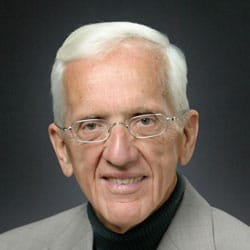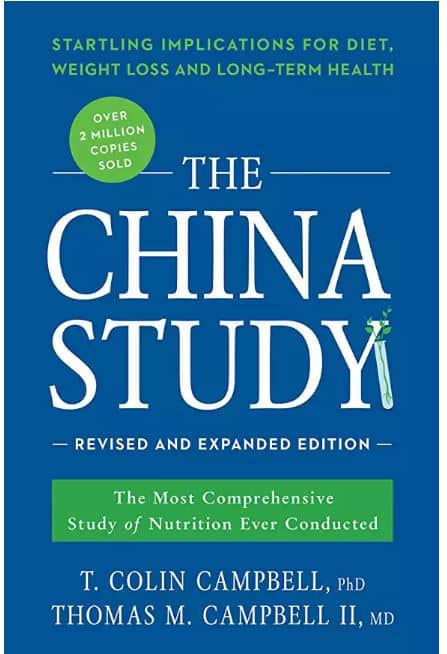An Interview with Dr. T. Colin Campbell: The Whole-Foods Plant-Based Scientist
/0 Comments/in Diet & Nutrients, General, Z-Evergreen Articles/by Guest AuthorIn May 2019, I had an opportunity to speak with Dr. T. Colin Campbell, the American biochemist whose China study research has changed the way doctors, scientists, and the public think about food and nutrition. He is the Jacob Gould Schurman Professor Emeritus of Nutritional Biochemistry at Cornell University, author, researcher, and rock-star of the vegan world. Dr. Campbell’s advocacy of a low fat, “whole foods, plant-based (vegan) diet” has made him a celebrity in the alternative health and food industries.

Colin T.Campbell, PhD
Q: We are honored to have you come and speak to the Chicagoland community at our beautiful, newly built meditation center. As you know, we have been championing health and wellness through the veg diet for many years. Today, you are a luminary in the world of vegetarian health. Your research from the China study—which you are best known for—has moved the needle steadily toward veganism in this country. Our first question is, Were you a vegetarian when you started the China study?
Dr. Campbell: First I have to clarify, what is the China study? Basically, it was a study in China to determine why cancer was so common in certain parts of China and not in others. The idea for the study began in 1980-1981 between myself—I was working at Cornell—and Chen Junshi, Deputy Director of the Institute of Nutrition and Food Hygiene at the Chinese Academy of Preventive Medicine. . . .
It turned out to be the first research project between the United States and China. We organized a big survey of 130 villages across the country. We collected all kinds of information, from blood samples, urine samples, food samples, and so forth, and then spent the next 8 – 10 years recording this information. Finally, in 1990 it was released to the press for the first time in the New York Times. It received a lot of attention.
In any case, that study was undertaken as a scientist to find out whether in the human population we would be seeing the same thing that I had already been working on for about 20 years at that time in the lab: My work actually revealed some very exciting information, from my point of view and from the scientific point of view, during the 1960s, 70s, and 80s. It was very provocative, but that was an experiment on animal studies, and so I wanted to know the extent to which that information applied to humans. This was an opportunity and is why the China study was done.

It turned out that what we learned in the China study was consistent with what I had been learning in the laboratory. In the lab, data arose from work I started in the Philippines. We won’t get into that here, but it reveals something really important, and I will just mention a couple of ideas: One is that animal protein is not as great as a lot of people may think, and the second idea is that we can turn on cancer with the protein of cows’ milk, of all things, and then we can turn off cancer by replacing it with plant protein. That was very provocative. . . . The China study was completed and released in 1990. The book has now been translated into 48 languages around the world.
Now, to answer your question about whether or not I was a vegetarian when I began this research, I was not. I was raised on a farm, milked cows before I went to college and graduate school at Cornell University. My research was actually focused on the idea that the more animal protein we consume, the better our health; that’s what most everyone thought, and I did, too. My doctoral dissertation was based on that, so for me, all of the information that came my way—first, in the 60s in the Philippines and in the 70s in my lab, and then in China—all that work substantially questioned my own belief.
Excerpt from interview: What I mean is, when most people think about nutrition, they tend to think about individual nutrients and what they do or don’t do; of course, certain elements of our industry tend to promote that idea. In medicine, we’ve been trying to understand the use of single chemicals. We call them drugs, if you will. We think about individual diseases, prescribing this drug for that disease. In reality, however, that is not nutrition. Nutrition is where everything is working together in a very natural way.
I’d like to think that what I’m talking about is really what nature has created for us. All we need to do is get our heads out of the way and let nature work naturally. These are two vastly different sciences, if you will: One being the science of the medical community, and the other being the science of nutrition.
I finally arrived at a point where eating a plant-based diet was very important and is the healthiest kind of food we can eat. I’d like to add one more word, and that is “whole.” When we are consuming whole plant-based foods without all the added oil and sugar, that’s the ideal diet. Now, we know that through this diet, we can cure heart disease; we can reverse Type II diabetes; we can do a lot of amazing things by taking this approach.
This approach is the exact opposite of what most people were doing (and eating). This new approach became associated with the word “vegetarianism.” My family and I started to change our diet around 1980—as the information began to unfold—and it took us about 10 years to gradually become completely vegan. By 1992-1993, we were a 100%, and the rest is history.
Q: It sounds like this has been a long journey for you, being raised on a farm and considering meat-based protein as the optimal food for health. You really listened to the research that came back from your studies, however, and made changes accordingly. However, some people in the medical community are still resisting the findings in these studies.
Dr. Campbell: Not as many as some might think. There was one well-known reaction written early on when the book first came out. It was written by a young woman who was an English major; she had no training in medical research or nutrition. She later apologized for some of the things she wrote. Regarding resistance in the medical community, yes. One of the reasons there was resistance to this study is that no medical school in the USA actually teaches the science of nutrition which is fundamental to this study.
(Continued) This was adapted with permission from the full interview. Read the rest of this groundbreaking article at VeggieFestChicago.com; see here
Note: The interviewer, Dr. Kathryn Kruger, is a volunteer staff member of VeggieFestChicago.com. The organization’s annual VeggieFestChicago festival will be held August 10 and 11, 2019 in Lisle, Illinois. It includes food demos, international speakers, live music, and a vegetarian food court. Free admission.



